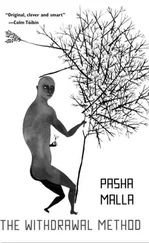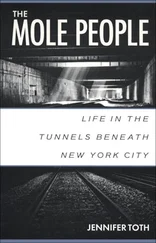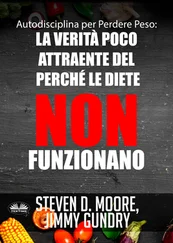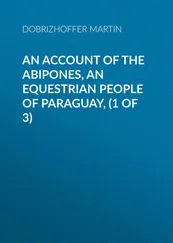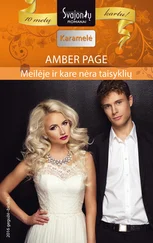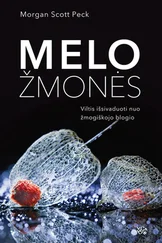Whooping from the hoodies.
This kid right here? She gets up on the struts under the tracks at UOT Station and waits for the night’s last train, it comes through slow, right, because of the construction, and when it comes she, get this, grabs one of the bars underneath the train ! And rides it like that all the way to the Barns, just hanging there, we’re all running along underneath, and when it lowers she jumps off and is just like, What. My sister, man.
The Hand twirled the fluorescent, laughed a shrugging sort of laugh.
Calum had heard this story, everyone had. It existed in his imagination as a movie. Walking underneath the Yellowline he’d often look up and imagine the weightless thrill of being zipped along, how it might feel to pass through airspace that no other human body had ever troubled, parted, touched.
Now the story had a hero, and here she was: Let’s go, said the Hand. You versus me.
Terse, ironic applause.
You want to go first?
First?
The rules are this, said the Hand. You call a twin and hit it, you get to sit down. You call one and hit the other, you got to take their spot. You miss three lights in a row, you take the spot of the kid you called last. You hit the kid and the light doesn’t break, you got to break the light over your own head. Got it?
The shirtless guy called, Good luck! in a cheery, chilling way.
Everyone laughed again, a rhythmic swell and ebb that felt rehearsed, artificial. It left behind a vaporous sort of silence that swelled and pulsed in the still air of the silo.
I’ll go first, said the Hand. Watch me, I’m the best. She had barely prophesied, Left, before her tube was flying from her hand in spinning flashes of light — and exploded on the kid on the left’s forehead. He crumpled from the chair, sunglasses skittering across the floor. Everyone went crazy.
The kid rose to his knees with a spidery wound opening on his temples. He shook his head, droplets of blood scattered in a little arc, and in a gargly voice choked, Hit.
More cheers.
The boy took his spot back on the stool, swaying slightly. One of the figures behind Calum came forward with the stray sunglasses, slid them back onto his face, and retreated. The kid hawked a thick, gory splat of blood onto the floor.
Your turn, said the Hand.
The tube felt heavier now.
The Hand said, Which one.
Beneath all that blood the left one’s face was pale. The other kid waited in silence.
Right thinks she’s tough, said the Hand. Hit her. Now!
Calum lobbed the tube weakly — it landed a foot short of the stools, skidded, stopped unbroken. Amid boos the girl kicked it back at Calum.
I’m done, I won, said the Hand. Two more for you though or it’s you on the stool.
Come on, son, called the shirtless guy from the couch. The Hand went to him, he folded her into his arms. The visor was blank but Calum sensed a sneer beneath it, he felt mocked. And the way he was holding her, it was familiar. .
And he was back down below the night before, the darkness full of screaming, grabbed by those big strong hands, that humid skin against his own, the suffocation, Calum had felt so feeble — and the sense that whoever it was had no face: here he was now, in his mask, holding the Hand, who dreamily stroked his chest. He placed one hand atop her head, onto the pattern of hair, and confirmed what Calum feared: a perfect fit.
Calum’s next throw went pinwheeling wide and high. The intended target watched it sail overhead: the light landed, popped, loosed a dusty puff up from the warehouse floor.
Jeers, screeches, catcalls, whistles. Someone cawed. Someone mooed.
Calum took his final tube from the pile. His reflection warped in the cloudy glass. He could hear the Hand taunting him and the guy — her brother? — taunting him too. But he wouldn’t look at them. His thoughts blurred, their words became noise.
Behind the girl’s sunglasses were the faint shadows of eyes. But they were dead eyes. There was nothing in them. They were nothing Calum could understand.
Calum cocked his arm. From the depths of Whitehall came the rumble of a train pulling out of the Barns, clacking up onto the tracks, heading south into the city. As its sound faded the boy on the other stool collapsed, hitting the floor with a dull thud. Blood trickled from his headwound, drastic and crimson on the cement. Calum lowered the tube, waited. But nobody moved. If anything, the air went rigid with impatience.
Come on, said the Hand. Throw!
Calum tried not to register the kid passed out and bleeding on the ground.
Throw! roared a dozen voices.
So he threw.
 HE 10:30 MEMORIAL unveiling would not be covered by In the Know , or any We-TV correspondents. A small crowd gathered in a clearing in the southeast corner of People Park known as Circle Square. Surrounded by poplars, in its centre was an inactive fountain clotted with dead leaves and bounded by the Community Gardens, the Hedge Maze, and Friendly Farm Automatic Zoo, where, when activated, mechanical beasts (animaltronics) lurched into educational couplings.
HE 10:30 MEMORIAL unveiling would not be covered by In the Know , or any We-TV correspondents. A small crowd gathered in a clearing in the southeast corner of People Park known as Circle Square. Surrounded by poplars, in its centre was an inactive fountain clotted with dead leaves and bounded by the Community Gardens, the Hedge Maze, and Friendly Farm Automatic Zoo, where, when activated, mechanical beasts (animaltronics) lurched into educational couplings.
The attendees comprised a few patrons of the arts in extravagant hats, a pair of cardigan’d archivists from the Museum of Prosperity, a shifty photographer, a curious family in Y’s paraphernalia on their way to the common. In the shade at the square’s southern edge a special area had been designated for protestors — Pop and Debbie — and though the sun arcing above the park was bright and warm, a chilly breeze whistled up from the lake. Debbie shivered. Lark, intoned Pop, peeling a hardboiled egg, a nip bequeaths the air.
Loopy, of course, was the belle of the ball. With her black-clad assistant at her side she waited impatiently for the Mayor to inaugurate the unveiling. Other than its materials (debris salvaged during the Homes’ revitalization), Loopy had kept quiet about the Lakeview Memorial. A white cloth draped over the sculpture suggested a ghost, six feet tall and hovering there starkly. Somewhere under that sheet was a plaque, Debbie knew. Pop had been consulted on the text, though he and the archivists had clashed over the word restribution , and in the end it comprised only the names of every resident of Lakeview Homes, 51,201 in all (It is I, claimed Pop, the extemporaneous one!). A tombstone of sorts, thought Debbie, though that seemed morbid. Better: a document and testament. It was, at least, something.
A few pigeons scrabbled and pecked at the cobblestones. With nothing else to shoot, the photographer pointed his camera at a passing cloud, which to Debbie resembled a vulture. She shivered again, and thought, with a bitter twinge, that she’d attended Loopy’s last opening too — she was becoming a regular Loopy groupie. As with most of Loopy’s exhibits, aside from the retrospective that consumed the second floor of the Museum of Prosperity, her previous show, Us: , had gone up that past September at Loopy’s Orchard Parkway gallery, Loopy’s, at which Loopy commandeered an underpaid, high-turnover staff of students from the Island Institute, her current assistant was one of these. Us: featured portraits of the most popular Faces of We-TV.
Even before it opened the project was celebrated on In the Know : What a diverse proclamation of municipal pride, Isa Lanyess had gushed. This truly is the best city on earth, and who better than Loopy to show the people of our beloved island to us, in all their and its glory. Loopy also guested on Salami Talk , flirting along to Wagstaffe’s inane questions. How do you like your sausage, soft or hard, he yucked. Oh, I like it hard — very hard, Loopy said, batting purple eyelashes, and they both took big bites out of rods of cured meat, and winked. At home, Adine threw the remote at her TV.
Читать дальше
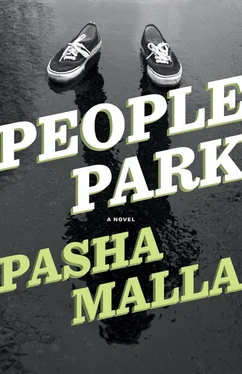
 HE 10:30 MEMORIAL unveiling would not be covered by In the Know , or any We-TV correspondents. A small crowd gathered in a clearing in the southeast corner of People Park known as Circle Square. Surrounded by poplars, in its centre was an inactive fountain clotted with dead leaves and bounded by the Community Gardens, the Hedge Maze, and Friendly Farm Automatic Zoo, where, when activated, mechanical beasts (animaltronics) lurched into educational couplings.
HE 10:30 MEMORIAL unveiling would not be covered by In the Know , or any We-TV correspondents. A small crowd gathered in a clearing in the southeast corner of People Park known as Circle Square. Surrounded by poplars, in its centre was an inactive fountain clotted with dead leaves and bounded by the Community Gardens, the Hedge Maze, and Friendly Farm Automatic Zoo, where, when activated, mechanical beasts (animaltronics) lurched into educational couplings.